Tea tree oil does not attract bugs; in fact, it repels insects due to its strong odor. This natural essential oil is commonly used as a bug repellent because it acts as a deterrent for mosquitoes, ants, and other pests.
Additionally, tea tree oil possesses antibacterial and antifungal properties, making it an effective remedy for various skin conditions such as acne, dandruff, and fungal infections. Tea tree oil is extracted from the leaves of the tea tree, scientifically known as melaleuca alternifolia, and has been used for centuries in traditional medicine.
With its versatile uses and bug-repelling benefits, tea tree oil has become a popular choice for those seeking natural solutions to keep insects at bay.
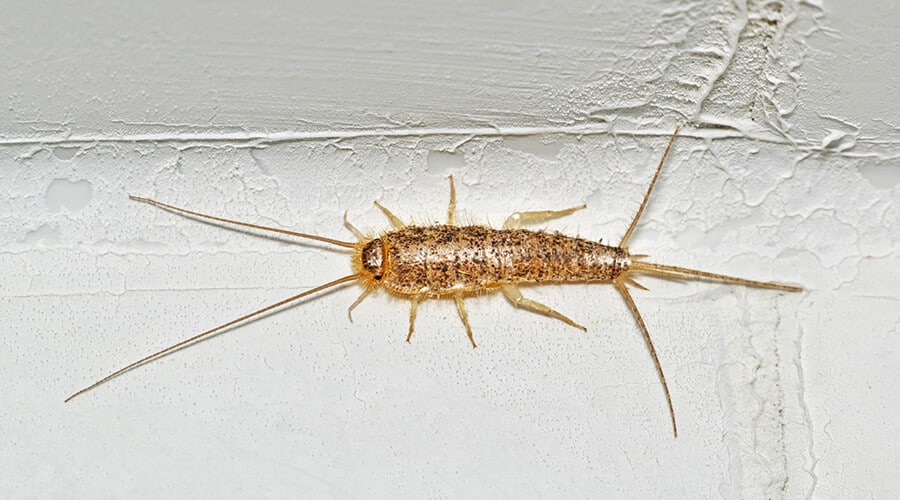
Credit: makemesustainable.com
The Basics Of Tea Tree Oil
Tea tree oil is a popular essential oil that has gained recognition for its numerous health and skincare benefits. Derived from the leaves of the melaleuca alternifolia tree, tea tree oil is renowned for its potent antimicrobial properties. In this section, we will explore what tea tree oil is, how it is produced, and the benefits it offers.
What Is Tea Tree Oil?
- Tea tree oil is a natural essential oil extracted from the leaves of the melaleuca alternifolia tree.
- It has a distinctive aroma and a pale yellow to nearly colorless appearance.
- Known for its powerful antimicrobial properties, tea tree oil has been used for centuries in traditional medicine.
How Is Tea Tree Oil Produced?
- Tea tree oil is extracted through a steam distillation process.
- The leaves of the melaleuca alternifolia tree are harvested and then exposed to water vapor, which causes the essential oil to be released.
- The resulting vapor is then condensed, producing the concentrated tea tree oil.
The Benefits Of Tea Tree Oil:
- Tea tree oil possesses antimicrobial properties, which makes it effective in fighting bacteria, viruses, and fungi.
- It can be used topically for various skin ailments, such as acne, dandruff, and fungal infections.
- The oil’s anti-inflammatory properties may help soothe redness, itching, and inflammation.
- Tea tree oil has been used in aromatherapy to alleviate respiratory issues and promote relaxation.
- It is a common ingredient in many personal care products, including shampoos, soaps, and lotions due to its natural cleansing properties.
Tea tree oil offers a versatile range of health and skincare benefits, making it a valuable addition to your collection of essential oils. Whether you’re seeking relief from skin conditions or looking for a natural way to keep your home clean and fresh, tea tree oil could be the perfect solution.
The Myth Of Attracting Bugs: Debunking Misconceptions
Tea tree oil has gained popularity for its impressive range of properties, from its antiseptic qualities to its insect-repelling abilities. However, amidst the many benefits, a common misconception has emerged: does tea tree oil attract bugs? Let’s debunk this myth and explore the scientific evidence and studies related to tea tree oil and bugs.
Does Tea Tree Oil Attract Bugs?
Tea tree oil is often used as a natural insect deterrent, which may lead some to wonder if it does the opposite and attracts bugs. The reality is quite the opposite:
- Tea tree oil repels bugs: Rather than attracting bugs, tea tree oil has been shown to be an effective repellent against various pests, including mosquitoes, flies, and ants. Its strong scent and potent compounds make it an unwelcome environment for insects, deterring them from coming close.
- Effective against mosquitoes: Mosquitoes are notorious for their annoying bites and potential transmission of diseases. Multiple studies have demonstrated tea tree oil’s efficacy in repelling mosquitoes, keeping these pesky insects at bay.
- Deterring flies and ants: Flies and ants can be persistent nuisances around the house. Tea tree oil can help ward off these unwanted visitors too. Its powerful scent acts as a deterrent, discouraging flies from landing on surfaces and repelling ants from invading your space.
- Potential benefits for bed bugs: While the research is limited, some evidence suggests that tea tree oil may have insecticidal properties against bed bugs. However, it’s essential to note that tea tree oil alone may not be sufficient to eradicate an infestation and should be used in conjunction with professional pest control methods.
Addressing Common Misconceptions
Now that we’ve debunked the myth that tea tree oil attracts bugs, let’s address some common misconceptions:
- Myth: Tea tree oil attracts spiders: while spiders play a vital role in controlling insects, they are not attracted to tea tree oil. In fact, tea tree oil’s repellent properties could dissuade spiders from entering your home.
- Myth: All bugs are repelled: while tea tree oil may repel many bugs, it’s important to remember that individual insects may respond differently to it. Some bugs may be more resilient or less affected by tea tree oil’s repellent qualities.
Scientific Evidence And Studies
Several scientific studies have explored tea tree oil’s effectiveness in repelling bugs. Here are some noteworthy findings:
- A study published in the journal of the american mosquito control association found that tea tree oil exhibited significant mosquito-repellent activity, outperforming other natural repellents.
- Research published in the journal of insect science showed that tea tree oil effectively repelled flies, reducing their landing activity and overall abundance.
- A study in the journal of economic entomology revealed that tea tree oil demonstrated ant-repellent properties, effectively discouraging ant foraging behavior.
While more research is needed to fully understand tea tree oil’s impact on different bug species, the available evidence suggests that it is indeed a powerful natural repellent.
Tea tree oil does not attract bugs. On the contrary, its strong scent and natural compounds make it an excellent insect deterrent. By dispelling these misconceptions and delving into scientific studies, we can appreciate tea tree oil’s role in repelling pests and creating a bug-free environment.
So, feel free to harness the benefits of tea tree oil without any concerns about it attracting unwanted insects.
The Repellent Effectiveness Of Tea Tree Oil
Tea tree oil has gained popularity for its wide range of uses and benefits. Many people wonder if this essential oil can also repel bugs effectively. In this section, we will explore the repellent effectiveness of tea tree oil, its role as a natural insect repellent, how it repels bugs, and how it compares to conventional insect repellents.
Tea Tree Oil As A Natural Insect Repellent
Tea tree oil has been used for centuries due to its powerful antiseptic and antimicrobial properties. However, its potential as a natural insect repellent is increasingly being recognized. Here are some key points to consider:
- Tea tree oil contains compounds like terpinen-4-ol and cineole, which are believed to have insect repellent properties. These compounds not only deter bugs but also interfere with their ability to detect hosts.
- Tea tree oil is considered safe for use on the skin and can be applied directly to repel insects such as mosquitoes, flies, and ticks. It is a popular alternative to conventional chemical-based insect repellents, especially for those seeking natural options.
How Tea Tree Oil Repels Bugs
Tea tree oil repels bugs through various mechanisms. Here are a few ways it works as a bug repellent:
- Its strong fragrance acts as a deterrent for insects, making them less likely to approach areas where the oil is applied.
- Tea tree oil disrupts the insects’ olfactory receptors, making it difficult for them to detect human or animal hosts and ultimately deterring them from biting or stinging.
Comparison To Conventional Insect Repellents
When comparing tea tree oil to conventional insect repellents, certain factors should be considered:
- Tea tree oil may not provide the same long-lasting protection as chemical-based repellents, requiring more frequent reapplication.
- While tea tree oil is generally safe for most people, some individuals may experience skin irritation or allergic reactions. It’s essential to perform a patch test before applying it to larger areas of the body.
- Conventional insect repellents often contain strong chemicals like deet. Tea tree oil provides a natural alternative, particularly for those concerned about potential health risks associated with synthetic ingredients.
Tea tree oil has demonstrated insect-repellent properties, making it a viable natural option for keeping bugs at bay. Its effectiveness, however, may vary depending on the specific insect and individual preferences. Understanding its benefits, limitations, and how it compares to conventional repellents can help you make an informed decision when seeking bug repellent solutions.
Types Of Bugs Repelled By Tea Tree Oil
Tea tree oil is a popular natural remedy known for its numerous benefits. It is commonly used in skincare, haircare, and even for cleaning purposes. One question that often arises is whether tea tree oil attracts bugs or repels them.
The good news is that tea tree oil is actually effective in repelling several types of bugs and insects. In this section, we will explore the key bugs that are repelled by tea tree oil.
Mosquitoes And Tea Tree Oil:
- Tea tree oil is known for its ability to repel mosquitoes, which are notorious for their annoying bites.
- The strong scent of tea tree oil acts as a deterrent for mosquitoes, making it less likely for them to land on your skin.
- It is important to note that tea tree oil should not be used as the sole method of mosquito control, especially in areas with a high mosquito population. It can be used in combination with other preventive measures, such as mosquito nets and repellents.
Flies And Tea Tree Oil:
- Just like mosquitoes, flies are also repelled by tea tree oil due to its strong odor.
- Applying tea tree oil around your home or using it in homemade fly repellent sprays can help keep flies away.
- Keep in mind that tea tree oil should not be used directly on your skin to repel flies. Instead, use it as a deterrent in your surroundings.
Ants And Tea Tree Oil:
- If you have been dealing with ants invading your home, tea tree oil can be a natural solution.
- Ants dislike the strong scent of tea tree oil, so applying it in areas where ants are commonly found can help deter them.
- However, it is important to note that tea tree oil may not completely eliminate ant infestations, especially if there is a large colony. Professional pest control may be necessary in severe cases.
Other Bugs And Insects Affected By Tea Tree Oil:
- Tea tree oil has been found to repel various other bugs and insects, such as ticks, fleas, and spiders.
- The strong aroma of tea tree oil acts as a natural repellent, deterring these pests from invading your space.
- It is worth mentioning that while tea tree oil may repel certain insects, it may not be effective against all types of bugs. In some cases, professional pest control methods may be necessary.
Tea tree oil is an effective natural repellent for various bugs and insects. From mosquitoes to flies, ants to ticks, it can help keep unwanted pests at bay. Incorporating tea tree oil into your pest control routine can be a safe and natural alternative.
Remember, while tea tree oil may be useful in repelling bugs, it is important to consider other preventive measures in areas with high bug populations.
Proper Application Of Tea Tree Oil
Tea tree oil is a popular essential oil known for its numerous benefits, including its potential bug repellent properties. If you’re wondering whether tea tree oil attracts bugs or not, it’s essential to understand the proper application techniques for this natural remedy.
Diluting tea tree oil correctly and applying it on the skin can help maximize its bug repellent potential. Let’s delve into the key points of properly using tea tree oil to keep those pesky insects at bay.
Diluting Tea Tree Oil For Bug Repellent Use:
- Tea tree oil is highly concentrated, and applying it directly to the skin can cause skin irritation or allergies. Diluting it with a suitable carrier oil, such as coconut or olive oil, helps to reduce the risk of adverse reactions.
- To dilute tea tree oil, it is recommended to use a ratio of one part tea tree oil to ten parts carrier oil. This dilution is considered safe and effective for bug repellent use.
- The diluted mixture should be thoroughly mixed before applying it onto the skin to ensure an even distribution of the tea tree oil.
Ratio Guidelines For Dilution:
- One part tea tree oil to ten parts carrier oil is the most commonly recommended ratio for dilution, but some variation is acceptable. You can adjust the ratio based on personal preference or factors such as sensitivity to tea tree oil.
- For individuals with more sensitive skin, a higher proportion of carrier oil can be used to further decrease the risk of skin irritation.
Applying Tea Tree Oil On The Skin:
- Before applying the diluted tea tree oil, it’s important to clean and dry the skin surface thoroughly. This helps to remove any dirt or sweat that may reduce the effectiveness of the bug repellent.
- Using clean hands or a cotton ball, gently apply the diluted tea tree oil mixture to the exposed areas of the skin. Focus on areas where bugs are more likely to bite, such as arms, legs, and ankles.
- Ensure that the tea tree oil mixture is evenly applied and completely absorbed into the skin.
- Reapply the diluted tea tree oil every few hours or as needed, particularly if you are in an area with a high concentration of bugs or if you’ve been sweating.
By following these proper application techniques for tea tree oil, you can enjoy the potential bug-repellent benefits while minimizing any risks or adverse reactions. Keep in mind that the effectiveness may vary depending on individual factors, the concentration of tea tree oil used, and the specific type of bugs you’re trying to repel.
Stay bug-free and enjoy the outdoors with this natural remedy!
Precautions And Potential Risks
Tea tree oil is a popular essential oil known for its various health benefits. From treating acne to soothing skin irritations, this versatile oil has gained a loyal following. However, when it comes to using tea tree oil, it’s important to be aware of any potential risks and take necessary precautions.
In this section, we will explore some precautions and potential risks associated with using tea tree oil.
Potential Skin Irritations And Allergies
Tea tree oil is generally safe for most people when used properly. However, some individuals may experience skin irritations or allergic reactions when using this oil. Here are a few key points to keep in mind:
- Tea tree oil is highly concentrated and should never be used undiluted on the skin. Always dilute it with a carrier oil, such as coconut oil or almond oil, before applying it topically.
- Perform a patch test before using tea tree oil on a larger area of your skin. Apply a small amount of diluted oil to a small patch of skin and wait for 24 hours. If you notice any redness, itching, or irritation, discontinue use.
- Avoid using tea tree oil on broken or damaged skin. It can sting and irritate open wounds or cuts.
- If you have sensitive skin or a history of allergies, it’s best to consult a dermatologist before using tea tree oil.
Safety Precautions When Using Tea Tree Oil
To ensure safe usage of tea tree oil, consider the following tips:
- Keep tea tree oil out of reach of children and pets. Ingesting or applying undiluted oil can be toxic.
- Store the oil in a cool, dark place to prevent degradation of its therapeutic properties.
- Avoid contact with eyes, mouth, and other sensitive areas. If accidental contact occurs, rinse thoroughly with water.
- If you experience any adverse reactions or discomfort after using tea tree oil, discontinue use immediately.
Consulting A Professional Before Use
Although tea tree oil is generally safe for topical use, it is always recommended to consult a professional before incorporating it into your routine. A dermatologist or healthcare provider can assess your specific needs and provide personalized guidance. They can also help determine if tea tree oil interacts with any medications you may be taking.
Remember, while tea tree oil offers numerous benefits, it’s crucial to prioritize safety and take the necessary precautions. By following these guidelines and seeking professional advice when needed, you can enjoy the advantages of tea tree oil while minimizing any potential risks.
Tea Tree Oil For Skin Care
Tea tree oil is a popular ingredient in many skincare products, known for its natural healing properties and ability to combat various skin conditions. But does tea tree oil attract bugs? In this blog post, we will explore the use of tea tree oil for skin care and its effectiveness in treating acne and other skin conditions.
We will also discuss how tea tree oil is incorporated into skincare products. So, let’s dive right in.
Treating Acne With Tea Tree Oil
- Tea tree oil has antimicrobial properties that can help kill the bacteria responsible for acne.
- It has anti-inflammatory properties that can reduce redness and swelling associated with acne.
- Tea tree oil can also help regulate the skin’s oil production, preventing clogged pores that lead to breakouts.
- To use tea tree oil for acne, dilute it with a carrier oil like coconut oil and apply it to the affected areas with a cotton ball or swab.
- Alternatively, you can look for skincare products that contain tea tree oil as an active ingredient.
Healing Properties Of Tea Tree Oil For Skin Conditions
- In addition to acne, tea tree oil is known for its effectiveness in treating a wide range of skin conditions, including psoriasis, eczema, and fungal infections.
- Its antifungal properties make it effective against common skin concerns like athlete’s foot and nail fungus.
- Tea tree oil can soothe itching and inflammation associated with these skin conditions and promote healing.
- It is important to note that tea tree oil should always be diluted before applying it to the skin to avoid irritation.
Tea Tree Oil In Skincare Products
- Many skincare products, including cleansers, toners, and serums, incorporate tea tree oil for its beneficial properties.
- These products often combine tea tree oil with other ingredients that provide additional skincare benefits.
- When shopping for tea tree oil-infused skincare products, it’s essential to look for reputable brands that use high-quality ingredients.
- Some products may contain a lower concentration of tea tree oil, while others may have synthetic fragrances or harsh additives.
- Reading reviews and checking the ingredient list can help you find the right tea tree oil skincare product for your needs.
As you can see, tea tree oil is a versatile ingredient in skincare, offering numerous benefits for various skin conditions, especially acne. Whether you choose to use it in its pure oil form or as part of a skincare product, tea tree oil can be a valuable addition to your skincare routine.
Tea Tree Oil For Household Cleaning
Tea tree oil is not only popular for its various health benefits but also for its natural cleaning properties. This essential oil derived from the leaves of the tea tree plant possesses antimicrobial, antibacterial, and antifungal properties, making it an excellent ingredient for household cleaning products.
In this section, we will explore the natural cleaning properties of tea tree oil, how to make diy cleaning solutions using this versatile oil, and the benefits of incorporating tea tree oil into your cleaning routine.
Natural Cleaning Properties Of Tea Tree Oil:
- Tea tree oil is a natural disinfectant that effectively kills germs, bacteria, and viruses, making it perfect for cleaning and sanitizing surfaces.
- Its antifungal properties help combat mold and mildew growth, making it an ideal choice for bathroom and kitchen cleaning.
- Tea tree oil is a natural deodorizer that helps eliminate unpleasant odors, leaving your home smelling fresh and clean.
- It can repel certain insects and bugs, making it a useful addition to natural pest control strategies in your home.
Diy Cleaning Solutions With Tea Tree Oil:
- All-purpose cleaner: Mix water, vinegar, and a few drops of tea tree oil in a spray bottle for a versatile cleaner that can be used on various surfaces such as countertops, sinks, and floors.
- Mold and mildew remover: Create a solution of water and tea tree oil, spray it onto affected areas, let it sit for a few minutes, and then wipe away the mold and mildew.
- Air freshener: Combine water, a drop of tea tree oil, and your favorite essential oils for a refreshing and natural air freshener.
- Laundry booster: Add a few drops of tea tree oil to your laundry detergent to help eliminate bacteria, fungi, and odor from your clothes.
Benefits Of Using Tea Tree Oil In Cleaning Products:
- Non-toxic: Unlike many conventional cleaning products that contain harsh chemicals, tea tree oil is a natural alternative that is safe for both you and the environment.
- Versatile: Tea tree oil can be utilized in various cleaning solutions, offering a wide range of applications for different cleaning needs.
- Cost-effective: By making your own cleaning solutions with tea tree oil, you can save money compared to purchasing expensive commercial cleaning products.
- Chemical-free: Tea tree oil provides an alternative to chemical-laden cleaning products, reducing your exposure to potentially harmful substances.
- Pleasant aroma: Aside from its cleaning properties, tea tree oil leaves behind a refreshing scent that can invigorate your living spaces.
Incorporating tea tree oil into your household cleaning routine brings numerous benefits. From its natural cleaning properties to its versatility in diy cleaning solutions, tea tree oil offers a safe and effective way to keep your home fresh, clean, and free from harmful chemicals.
Whether you’re tackling kitchen messes or banishing bathroom mold, tea tree oil is a go-to ingredient for a healthier and more environmentally friendly clean.
Frequently Asked Questions On Does Tea Tree Oil Attract Bugs
Can Tea Tree Oil Attract Bugs Indoors?
Tea tree oil has a strong scent that may repel certain bugs. However, it can also attract bugs like fruit flies and gnats if not used properly. It is essential to keep the oil properly sealed and use it in controlled amounts to avoid attracting bugs indoors.
Does Tea Tree Oil Attract Mosquitoes?
No, tea tree oil is not known to attract mosquitoes. In fact, it can be used as a natural mosquito repellent due to its strong scent. However, keep in mind that its effectiveness in repelling mosquitoes may vary and it should be used in conjunction with other preventative measures.
Will Tea Tree Oil Attract Ants?
Tea tree oil does not typically attract ants. In fact, it can be used as an ant deterrent due to its pungent scent. Mixing a few drops of tea tree oil with water and spraying it along ant trails and entry points may help deter ants from entering your home or space.
Can Tea Tree Oil Attract Bed Bugs?
Tea tree oil is not known to specifically attract bed bugs. Although it has some repellent properties, it is not a foolproof method for preventing or treating bed bug infestations. If you suspect a bed bug problem, it is advisable to seek professional pest control assistance for effective eradication.
Is Tea Tree Oil Attractive To Bees?
Bees are not typically attracted to tea tree oil. However, it is always important to handle and store essential oils properly to prevent any accidental contact with bees or other pollinators. If you are concerned about attracting bees, be cautious when using tea tree oil outdoors and ensure any spills or excess oil is cleaned up promptly.
Will Tea Tree Oil Attract Spiders?
Tea tree oil is not known to attract spiders. In fact, it can be used as a natural spider repellent due to its strong smell. Mixing a few drops of tea tree oil with water and spraying it in areas where spiders are common may help deter them from entering your space.
Conclusion
The use of tea tree oil to repel bugs is a topic of debate. While some studies suggest that it may have insect-repelling properties, the evidence is not conclusive. Tea tree oil contains compounds like terpinen-4-ol, which have been found to repel certain types of insects.
However, it is important to note that the effectiveness of tea tree oil as a bug repellent may vary depending on the type of insect and the concentration of the oil used. It is also worth mentioning that tea tree oil should be used with caution, as it can cause skin irritation in some individuals.
If you are considering using tea tree oil to repel bugs, it is advisable to test it on a small area of skin first and consult with a healthcare professional. As with any natural remedy, it is always best to take a cautious and informed approach.

“My name is Leo Jacob, and I hold a Bachelor of Science degree with Honors in Applied Environmental Science and Sustainability from the University of the West of Scotland. Since childhood, I’ve been passionate about living an eco-friendly life. After completing my studies, I dedicated myself to finding simple ways to lead a more environmentally conscious lifestyle. I launched ecolifely.com to share my educational background and practical experiences with everyone, hoping to inspire others to join me in creating a greener, more sustainable world.”

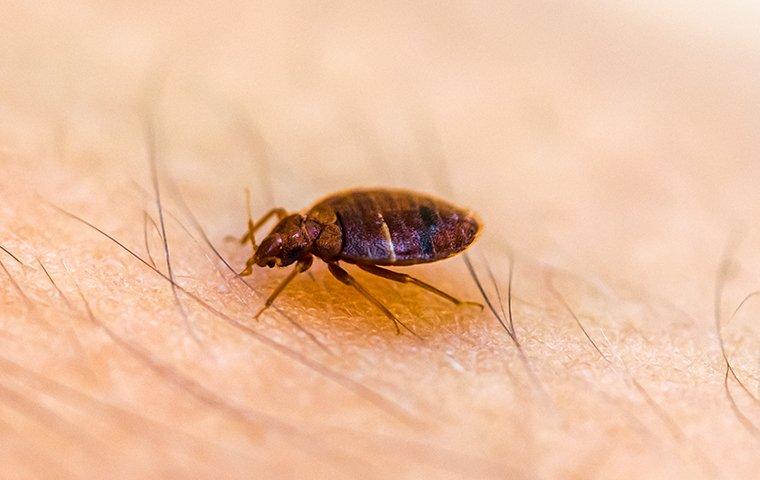

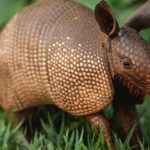

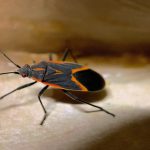





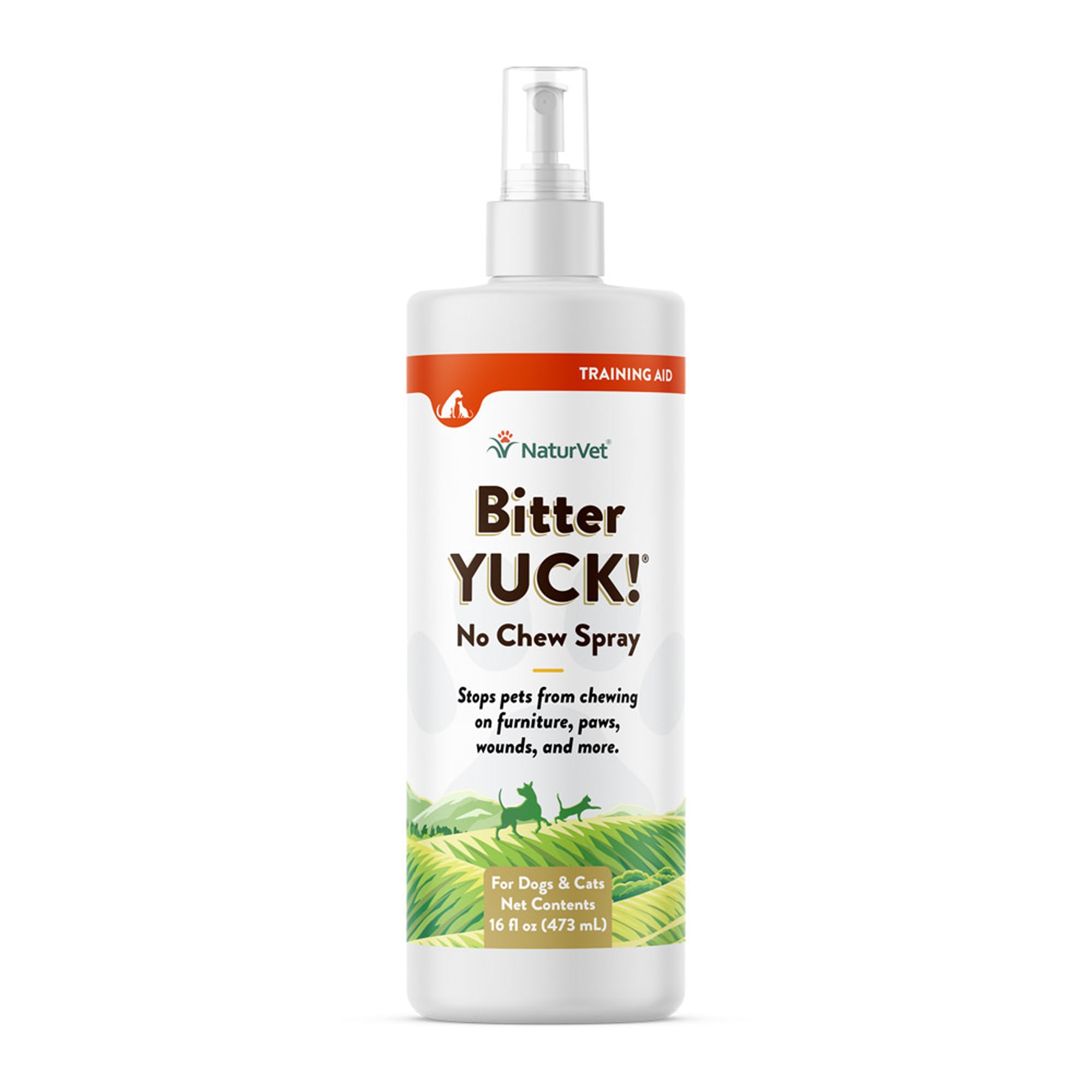
Leave a Reply